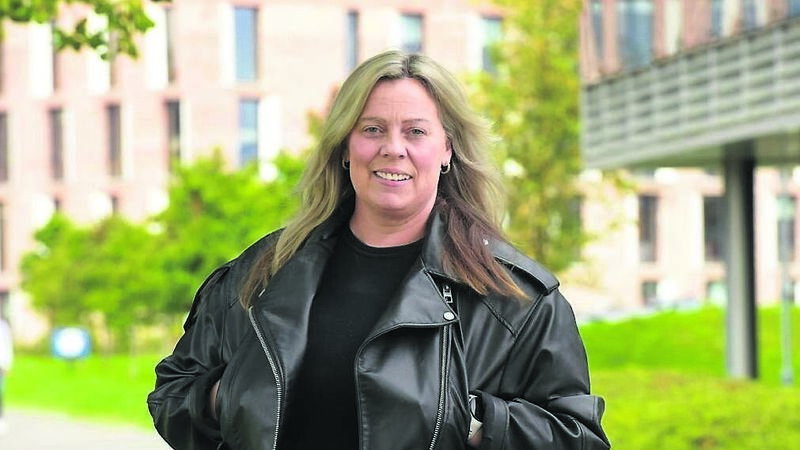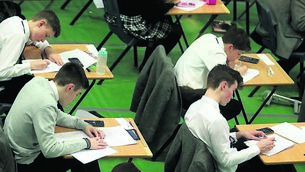We need a President to inspire us... here’s my choice

Dr Katriona O’Sullivan would be an inspiring choice as president, says Catherine Conlon
When Jacinda Ardern become prime minister of New Zealand aged 37, the world paid attention. But it was her mix of compassion and leadership at the time of the 2019 Christchurch mosque attacks, resulting in swift gun control laws, that demonstrated a new kind of power, rarely glimpsed in today’s world.
As summer draws to a close and the nation concentrates its mind on the qualities needed in Ireland’s next president, while the world is in turmoil, the attributes Ardern brought to her role are worthy of consideration.
During Friday prayers on March 15, 2019, 51 people were killed when an Australian man opened fire on two mosques in Christchurch, New Zealand. Dozens more were injured.
Violence at this scale was incomprehensible in New Zealand where there is an average of ten fatal shooting incidents a year.
What followed prompted a global conversation about the kind of leadership that Prime Minister Jacinta Ardern represented. A conversation that reverberated around the world.
“Many of those who will have been directly affected by this shooting may be migrants to New Zealand, they may even be refugees here. They have chosen to make New Zealand their home, and it is their home,” she said. “They are us. The person who has perpetuated this violence against us is not. They have no place in New Zealand.”
In her book A Different Kind Of Power (2025) Ardern describes a telephone conversation in the aftermath of the killings with U.S President Donald Trump when he asked if there was anything he could do.
“I waited just a moment, thought briefly about what a small country like mine might ask of a country as well-resourced as the United States. My answer was simple. ‘You can show sympathy and love for all Muslim communities’.”
Later, when she met the families of victims, the packed room had no podium, no natural place to address the crowd. She raised her arms and invited the room to sit. Before long, the packed room was still and quiet.
Ardern’s first words were “As-salamu alaykum”. Peace be with you. In a voice that shook, she spent several minutes sharing in their grief, taking questions from the floor about the return of loved ones.
Forty people had been injured by the gunfire, some critically. Ardern’s first hospital visit was to the ICU but there were many more in the days and weeks that followed. She moved from room to room, talking to families, listening to their stories.
There were many events to mark what happened on March 15. Ardern highlights two in particular. A week after the terrorist attack, the Muslim community returned to Friday prayers. The government asked national radio to play the call to prayer while the largest city park, Hagley Park, beside the Al Noor mosque, where most of the deaths had occurred, was converted into an outdoor prayer space.
About 15,000 people streamed into the park, to show solidarity to the worshippers. The scene was a rejection of hate and whatever goals the terrorist had tried to achieve. Similar gatherings occurred in towns and cities across New Zealand and further afield.
The second event Ardern highlighted as indelible in her memory was the National Day of Remembrance: Ko Tatou, Tatou - We Are One, where 20,000 New Zealanders gathered two weeks after the shooting. A respected local woman hung a Maori kakahu ceremonial cloak around her shoulders as the karanga began. A karanga is a sound made by Maori women that is reputed to join the living to the spiritual world. It is both a song and a lament. Ardern said she had heard the karanga countless times and every time it moved her.
“But as it rang out across the open park and settled on the thousands of people that had gathered, it felt like a cloak linking a group of strangers together. And yet sitting there, I was just as committed to a world in which we took care of one another. I still believed that when faced with a choice between hatred and hope, you must chose hope every time.”
As we prepare for the presidential election, we have someone in our midst who has the power to be equally empowering and inspiring with a natural gift that few of us can aspire to.
Dr Katriona O’Sullivan was born in Coventry to Irish parents. Aged 20, in 1998, she moved from Bermingham to Dublin and subsequently enrolled in the Trinity College access programme. She went on to gain a PhD in psychology from Trinity and joined its staff. She now works as a senior lecturer in Digital Skills in Maynooth University’s Department of Psychology, developing strategies around education and inclusion. She has been an invited speaker at the UN and the World Education Forum. Her first book, Poor, in 2023, outlined her incredible story, coming from a working class background and overcoming immense challenges to flourish personally, academically and professionally.
Poor was Biography of the Year at the 2023 Irish Book Award. Outstanding as it is, it is her ability to inspire at speaking events that is most impactful. Her presentations have to be heard to be realised for their ability to captivate. It is this unique quality that she would bring to the role of president.
A year ago, Dr O’Sullivan shared the stage at the Masters Event in Oxford University, speaking alongside global trauma experts including Gabor Maté, Dutch American psychiatrist Bessel van de Kolk and systemic systems family therapist, Richard Schwartz. Even among these global icons, she stood out, speaking with passion about inclusion, resilience and the power of kindness.
“I like to say we’re born with a space in our chest, all of us. If we have good parents who are responsive – they place a light there. And that light guides us, especially when things are hard. When I arrived in school I had a complete dark space in here. I’d be lying in bed thinking ‘I’m scared, who… who do I have?
She described how just one teacher who believed in her changed her outlook on what was possible – her words continually whispering in her brain. “Ms Arkinson thinks you’re somebody. Ms Arkinson thinks you’re somebody. And that was the whisper of my life. After two years of Ms Arkinson, I had this light. And it’s guided me my whole life.”
The president’s role is to uphold the constitution. As important is their ability to inspire a nation – in a world that is filled with turmoil and inequality and hate.
Jacinda Ardern had that rare empathic quality that uplifted and elevated a nation. Katríona O’Sullivan has it too. Listening to her gives me goose-bumps and makes me think anything is possible. She gives me hope.
Imagine the hope she could give our small but significant little nation if she was president.







 App?
App?




